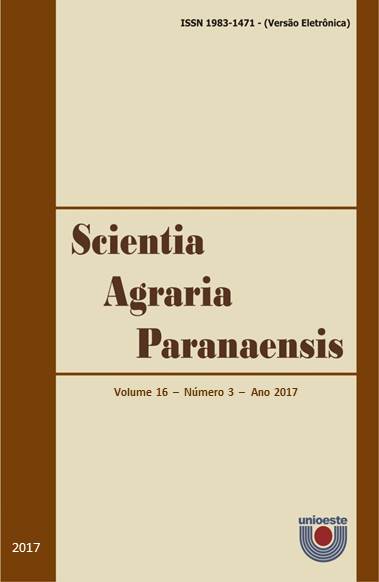Resistance of wood Jatobá lumber by attack of Rhizoctonia solani
Palavras-chave:
fungo manchador, Hymenaea coubaril, preservação da madeira, umidade.Resumo
The Rhizoctonia is a stainer fungus that causes great damage to the timber industry, attacking several species of commercial interest. The objective of this study was to evaluate the resistance of wood sawn Jatoba with different moisture contents to the fungus Rhizoctonia solani attack, in a controlled environment and natural conditions. The treatments consisted of two regions of the wood sample collection (sapwood and heartwood), two environments B.O.D. (± 24 ºC) under natural conditions (± 30 ºC) and four levels of moisture (control, 20%, 40-45% and 70-75%) with 12 replications. Samples were inoculated on their surface with pure culture of the fungus R. solani. The micelliation of the fungus was verified using a transparent plastic template. The results showed a favorable effect on the development of the fungus in the sapwood samples with moisture contents in the 70-75% range in a controlled environment, being more intense than 20% and 40-45%, characterizing that Rhizoctonia develops better under high levels of moisture. It is evident the importance of performing the wood drying process, thus obtaining moisture content unfavorable to the development of fungi.
Downloads
Publicado
Como Citar
Edição
Seção
Licença
Aviso de Direito Autoral Creative Commons
Política para Periódicos de Acesso Livre
Autores que publicam nesta revista concordam com os seguintes termos:
1. Autores mantém os direitos autorais e concedem à revista o direito de primeira publicação, com o trabalho simultaneamente licenciado sob a Licença Creative Commons Attribution que permite o compartilhamento do trabalho com reconhecimento da autoria e publicação inicial nesta revista.2. Autores têm autorização para assumir contratos adicionais separadamente, para distribuição não-exclusiva da versão do trabalho publicada nesta revista (ex.: publicar em repositório institucional ou como capítulo de livro), com reconhecimento de autoria e publicação inicial nesta revista.
3. Autores têm permissão e são estimulados a publicar e distribuir seu trabalho online (ex.: em repositórios institucionais ou na sua página pessoal) a qualquer ponto antes ou durante o processo editorial, já que isso pode gerar alterações produtivas, bem como aumentar o impacto e a citação do trabalho publicado (Veja O Efeito do Acesso Livre).
Licença Creative Commons
Esta obra está licenciada com uma Licença Creative Commons Atribuição-NãoComercial-CompartilhaIgual 4.0 Internacional, o que permite compartilhar, copiar, distribuir, exibir, reproduzir, a totalidade ou partes desde que não tenha objetivo comercial e sejam citados os autores e a fonte.


